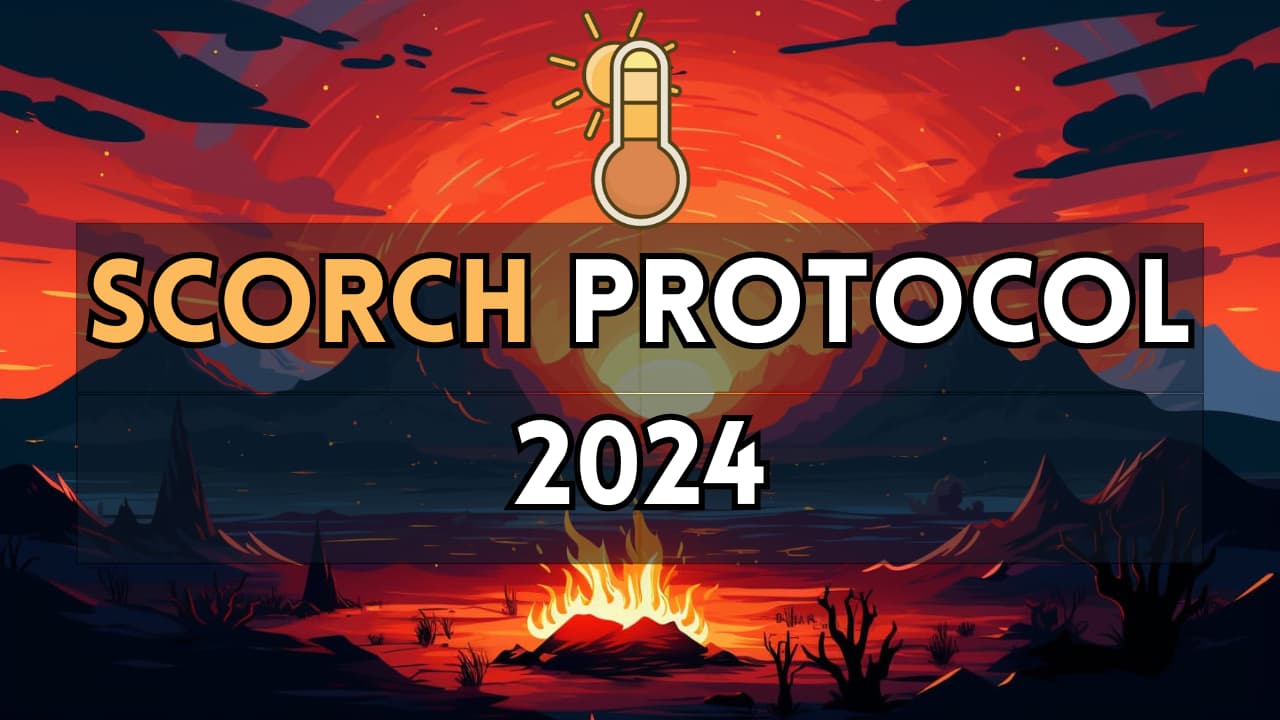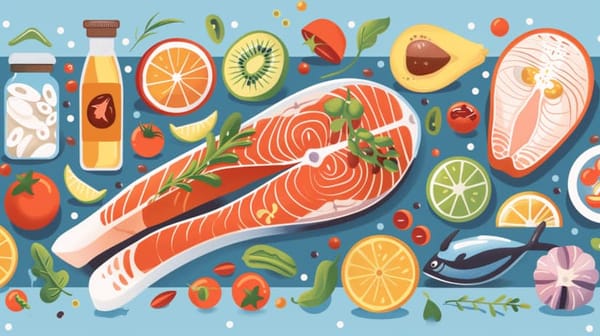I've spent years immersed in the world of fasting, exploring its depths and pushing its boundaries. Like many of you, I was drawn to the idea that fasting is not just a practice but a return to our ancestral roots—a natural state that holds the key to optimal health. (Not to mention, a big FU to the consumption and unhealthy lifestyle pushed in our society) But as I've delved deeper, I've come to question whether the fasting lifestyle is truly the panacea it's often made out to be.
Let me share a story. Someone I've been working with weekly, let's call him Alex, embarked on a strict one-meal-a-day fasting regimen. I personally never advocate for long-term intermittent fasting anymore, but I also can't stop people from doing it – I simply try to tell them that dry fasting is miraculous, but to stay away from the mindset that you should always be fasting to get even more miracles. Anyway, I digress. At first, he felt fantastic—energized, focused, even euphoric. He believed he had tapped into a secret wellspring of vitality. But over time, subtle signs emerged: fatigue, mood swings, and unexpected weight gain. It was as if his body was rebelling against the very practice he thought was healing him. Does this sound like you perhaps?
This got me thinking: Is fasting inherently beneficial just because it's woven into our evolutionary history? After all, our ancestors didn't fast by choice—it was a necessity born out of scarcity. They adapted to survive, not to thrive. In a perfect world, they'd never have to fast. We're dynamic beings, not machines following a preset program. Our bodies are designed to adapt to a variety of conditions, but that doesn't mean every adaptation is optimal for our well-being.
Blood Sugar: The Silent Conversation
Let's dive into the physiology. Our blood sugar levels are more than just numbers on a chart; they're a dialogue between our bodies and the environment. The brain, our command center, runs primarily on glucose but can't store it. It relies on a steady supply from the bloodstream.
The truth is, our neurons are biologically wired to utilize glucose. Even when ketone levels are elevated, the brain still requires a significant amount of glucose to function properly. Certain regions, especially those involved in higher-order cognitive tasks, depend almost exclusively on glucose. Ketones can supplement energy needs but can't fully replace glucose.
When we eat carbohydrates, they're broken down into glucose, fueling our brain and muscles. But when we fast, that supply dwindles. In response, our bodies release a cascade of stress hormones—glucagon, adrenaline, growth hormone, cortisol—to keep us going. These hormones:
- Trigger Glycogen Breakdown: Tapping into stored glucose reserves.
- Promote Fat Breakdown: Converting fat into energy.
- Initiate Gluconeogenesis: Converting amino acids from muscle tissue into glucose.
- Produce Ketones: Offering an alternative fuel for the brain.
The article below gives much more details on ketones, ketosis, gluconeogenesis, and details about timelines, states, and more. Check it out.

I remember during one of my extended fasts, I felt a surge of clarity around day three. But that sharpness was accompanied by a racing heart and restlessness at night. It was my body's stress response kicking into high gear. While these mechanisms are lifesaving in the short term, relying on them chronically isn't ideal.
Elevated stress hormones can suppress immune function, disrupt reproductive hormones, impair digestion, and slow down thyroid activity. Over time, this can pave the way for chronic conditions like diabetes, heart disease, and depression.
The Insulin Illusion
Many fasting enthusiasts, myself included at one point, champion fasting for its ability to lower insulin levels. The belief is that less insulin equals better health. But insulin isn't the enemy; it's a vital hormone that helps cells absorb glucose. Problems arise not from insulin itself but from insulin resistance—when cells can't effectively use insulin, leading to elevated blood sugar and insulin levels.
Ironically, fasting can induce a form of insulin resistance. The body, aiming to conserve glucose for critical functions, makes cells less responsive to insulin. This is an adaptive response, but it's not one we want to maintain long-term.

Not All Stress is Created Equal
Some argue that the stress from fasting is beneficial—a concept known as hormesis. The idea is that what doesn't kill us makes us stronger. While certain stressors like moderate exercise can have net positive effects due to their specific benefits, not all stressors offer such returns.
I recall training for a marathon while experimenting with fasting. Initially, I believed the combined stress would amplify my results. Instead, I found myself overtrained, injured, and depleted. It was a harsh lesson that more stress isn't always better.
Fasting lacks unique benefits that outweigh its stress. Unlike exercise, which strengthens muscles and improves cardiovascular health, fasting's primary "benefit" is the stress it induces, hoping the body will adapt positively. But adaptation to stress often means conservation mode—slowing down metabolism, reducing reproductive function, and prioritizing survival over growth.
The Gut Connection
Short-term fasting can offer some relief by giving the digestive system a break. This can reduce the absorption of endotoxins—harmful components from certain bacteria that can cause inflammation and disrupt metabolism. So many people I work with struggle with some form of gut health, and SIBO is often one of them (I have an article specifically about SIBO and dry fasting and I highly recommend you read it or watch it on YouTube). A brief fast alleviates symptoms, but when resuming usual eating habits, the issues return. This is where dry fasting plays an impressive, extremely powerful role.
This highlights that while fasting can temporarily reduce symptoms, it's not always addressing the root cause. The resulting stem cell regeneration is where most of the magic happens – Just remember that you have to feed the stem cells correctly. Improving gut health through dietary choices is a more sustainable solution.
Building Without Breaking
So, how do we reap the benefits attributed to fasting without the collateral damage? The answer lies in nourishing the body consistently and wisely. This is why the REFEED is always called the most important part. I hope I can hammer this point home.
- Eliminate Irritants: Remove foods that harm the gut lining, like processed grains, legumes, and certain raw vegetables high in anti-nutrients. Focus on easily digestible foods.
- Embrace Healthy Fats: Opt for saturated fats like coconut oil, butter, and ghee. These support metabolic function and gut health. Avoid polyunsaturated fats (PUFAs) found in seed oils, which can promote inflammation.
- Prioritize Quality Carbohydrates: Incorporate ripe fruits and well-cooked root vegetables. They provide glucose for energy and contain beneficial nutrients that support metabolism.
- Regular Meal Timing: Eating balanced meals every few hours maintains stable blood sugar levels, reducing the body's need to release stress hormones.
I recall adjusting my own diet to include more of these nourishing foods. The difference was palpable—steady energy, improved mood, and better sleep. It was a stark contrast to the rollercoaster of energy and emotions I experienced while fasting. I attempt to include all of this in my ever growing Scorch Protocol, and especially the Scorch Protocol Blueprint Miro Board below.

Autophagy: The Cleanup Crew
A common argument for fasting is that it promotes autophagy—the body's process of cleaning out damaged cells. While autophagy is essential, inducing it through stress isn't the optimal path. Elevated autophagy during fasting occurs because the body is responding to increased stress and potential damage. It's better to minimize damage in the first place through a nutrient-rich diet and healthy lifestyle.
My article below showcases how shorter dry fasts give the same or better autophagy results, meaning with dry fasting you can fast LESS. Which is and always should be the main goal. Fast the least amount of time necessary to heal, so that you don't have to deal with too many of the metabolic side effects.

Thriving Over Surviving
Let's finish up here. Our goal shouldn't be to merely survive by pushing our bodies into survival mode. Instead, we should aim to thrive by providing consistent nourishment and reducing unnecessary stress. By improving gut health and optimizing glucose metabolism, we can experience sustained vitality without the drawbacks of chronic fasting.
In conclusion, while fasting has its place and can offer short-term benefits, it's not a one-size-fits-all solution for long-term health. There are so many situations where a dry fast is the magic bullet we're looking for (yes, the counter-counter argument is around stem cell regeneration, and boy is it a good one), but let's not fall into this mentality that all you should be doing is daily or weekly fasting. By listening to our bodies and prioritizing nourishment over deprivation, we can achieve a state of balance and well-being that doesn't rely on extreme practices.




